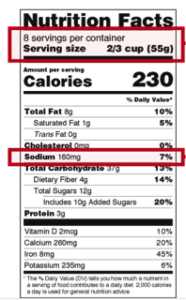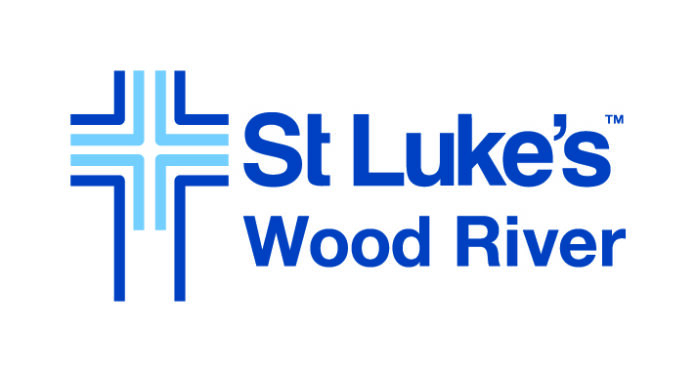 Reducing the amount of sodium (salt) in your diet can help you lower or avoid high blood pressure, which reduces your risk for heart disease and stroke. Even though our bodies need some salt for normal functioning, most people in America are getting much more than their bodies need. Over time, this can damage the blood vessels and increase the risk of heart attack and stroke.
Reducing the amount of sodium (salt) in your diet can help you lower or avoid high blood pressure, which reduces your risk for heart disease and stroke. Even though our bodies need some salt for normal functioning, most people in America are getting much more than their bodies need. Over time, this can damage the blood vessels and increase the risk of heart attack and stroke.
Facts about sodium (salt) intake from the American Heart Association (2022):
- Too much sodium causes the body to hold onto water, putting an extra burden on the heart and blood vessels.
- Nine out of 10 Americans consume too much sodium – more than 3400 mg per day.
- More than 70% of sodium consumed is from processed, packaged and restaurant foods.
- In the United States:
- Over 57% of non-Hispanic Blacks have high blood pressure.
- Among Hispanics, 44% have high blood pressure.
- Over 41% of Asian Americans have high blood pressure.
The American Heart Association recommends no more than 2300 mg of sodium per day, with an ideal limit of no more that 1500 mg per day to prevent heart disease and stroke (AHA, 2022). Foods that are high in sodium include:
- Canned foods
- Pre-packaged, ready-to-eat foods such as prepared meals, gravy mixes and canned soups
- Soda
- Table salt
Using Nutrition Facts Labels to Understand and Reduce Your Sodium Intake:
- When buying prepared / pre-packaged foods, check sodium content on the Nutrition Facts label.
- Compare the sodium content of similar products and choose items with the lowest sodium.
Additional ways to lower your sodium intake:
- Use Nutrition Facts labels to estimate sodium intake.
- Use less salt when cooking and seasoning.
- Don’t salt your food before you taste it.
- Try salt-free seasoning alternatives.
- Use herbs, spices, vinegars or fresh lime / lemon juice to add flavor.
High blood pressure is the leading cause of heart disease and stroke.
Reducing the amount of sodium in your diet can help you lower or avoid high blood pressure. For more information, visit stlukesonline.org or contact Stephanie Shawver, advanced primary stroke manager at St. Luke’s Magic Valley at (208) 814-4030, shawvers@slhs.org.
For more information from the American Heart Association visit https://www.heart.org/en/healthy-living/healthy-eating/eat-smart/healthy-living-spanish-infographics



